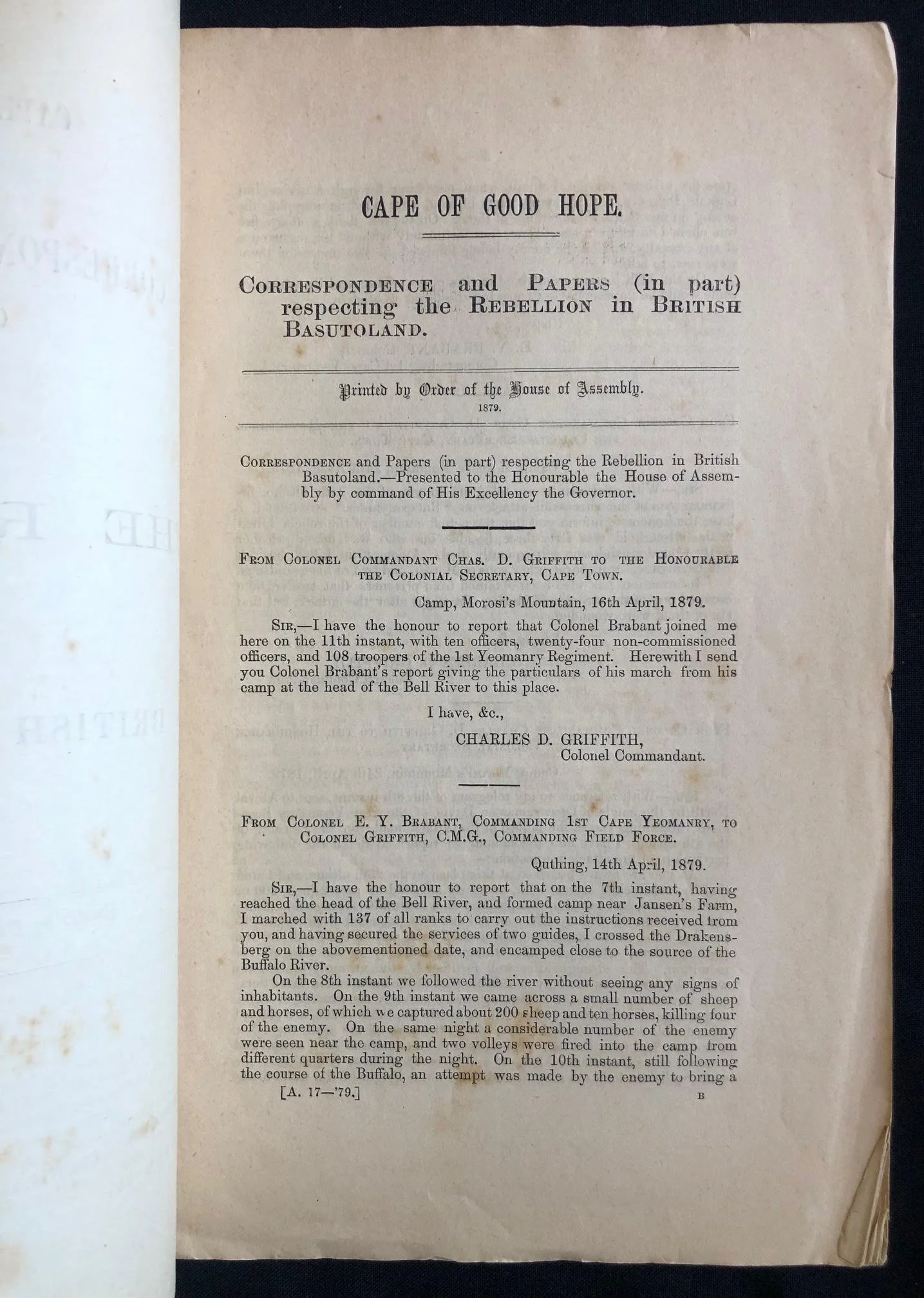Blue Book – The Rebellion In British Basutoland 1879
Published in 1879.
The Basutoland Rebellion, also known as the Basuto Gun War, was a conflict between the Basuto and the British Cape Colony. It lasted from 13 September 1880 to 29 April 1881 and ended in a Basuto victory.
Following Basutoland's transformation into a British territory on 12 March 1868, it became the target of rapid westernization efforts by the Cape Colony administration. In 1879, the Cape Parliament extended the Peace Preservation Act to Basutoland, with the aim of disarming the Basuto people. The immense significance of guns in Basuto society, compounded with past grievances, resulted in a rebellion led by chiefs Lerotholi and Masopha, which erupted on 13 September 1880. Heavily outnumbered and stretched thin by the simultaneous outbreak of other revolts, the Cape Colonial Forces failed to achieve a decisive military victory.
The ensuing military stalemate and the high cost of conducting the war made it increasingly unpopular among Cape politicians. On 29 April 1881, High Commissioner for Southern Africa, Sir Hercules Robinson announced the peaceful settlement of the conflict. The Cape's subsequent efforts to enforce disarmament and re-establish the rule of law in Basutoland was met with stiff resistance from Masopha and his supporters.
Unable to control the Basuto, the Cape Parliament passed the Disannexation Act in September 1883. The Basuto Gun War represents a rare example of an African nation's military victory against a colonial power, whereby the Basuto were able to retain their guns. Under the terms of the Disannexation Act, Basutoland was transformed into a British High Commission Territory, and thus not later incorporated into the Union of South Africa.
Basutoland gained its independence from the United Kingdom and became the Kingdom of Lesotho on 4 October 1966.
210 x 330mm
R2,000



